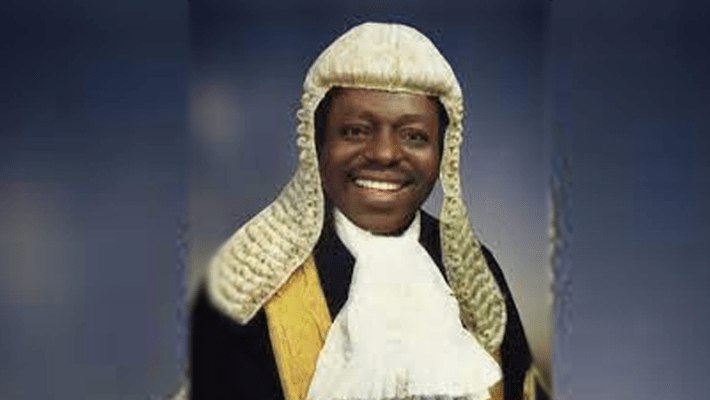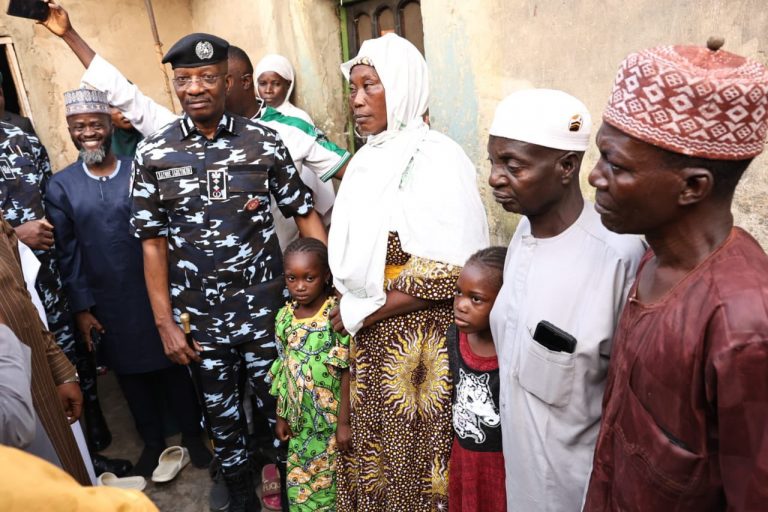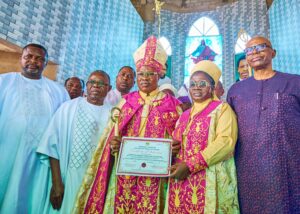What Dele Farotimi wrote in his book about how Afe Babalola corrupted Nigerian judiciary
The name Afe Babalola looms large in Nigeria’s political and judicial circles. The wealthy 95-year-old is considered an oracle among lawyers. The revered lawyer, educationist and philanthropist in the public eye was nearly incorruptible and a paragon of human rights until a Nigerian activist, Dele Farotimi, was hounded and abducted by the police over a defamation petition by Mr Babalola.
On Wednesday, the police arraigned Mr Farotimi on 12 counts of criminal defamation in Ekiti. Mr Farotimi, a retired lawyer and rights advocate, was arrested in Lagos on Tuesday morning and transported to Ado Ekiti, about 300 kilometres northeast of the nation’s commercial capital.
In a criminal complaint unveiled during Mr Farotimi’s initial arraignment on Wednesday morning, the police quoted excerpts of the activist’s book that was published earlier this year, saying they portrayed senior lawyer Afe Babalola in an unsavoury light with grave implications for public peace.
Following initial arraignment, a judge remanded Mr Farotimi in custody pending a bail hearing on December 10.
Mr Babalola has long faced public criticism as one of the senior lawyers notorious for their ability to influence court judgements across the country, eroding public trust in the Nigerian judiciary.
Mr Babalola has often denied the allegations, but some judges have lamented how some lawyers were known for their ability to undermine the judicial system by buying judgements. He was not specifically mentioned in the allegations by retired Justice Dattijo Muhammad.
Mr Farotimi’s book, ‘Nigeria and Its Criminal Justice System’, “was likely to cause fear and alarm to the public or disturb the public peace,” according to the charge sheet seen by Peoples Gazette.
Mr Farotimi, in the foreword of the book published this year, indicted Mr Babalola of the rot in the legal system. He recalled a case involving both of them at the Supreme Court, making him conclude that Mr Babalola corrupted judges to secure favourable judgements.
Citing the case of Major Muritala Gbadamosi 8c Ors v. H.R.H Oba Tijani Akinloye & Ors, otherwise known as the Gbadamosi-Eletu case, Mr Farotimi contended that Mr Bablola, “corrupted the Supreme Court to procure a fraudulent judgment in the service of his clients.”
He also alleged that a firm doctored the court judgement based on which a Lagos judge, at the time, illegally issued a warrant of execution but later quashed the warrant after it was challenged.
The book claimed that the law firm of “S. B. Joseph & Co. procured two warrants to execute the said judgment by doctoring the original judgment of the Supreme Court” and that “Atilade O, Justice at the time and the Administrative Judge of the Lagos Judicial Division, unlawfully issued a warrant of execution based on the doctored judgment and without the enrolled order of the Supreme Court.”
The book also alleged that “Atilade, J quashed the fraudulently obtained warrant following an application of counsel in protest against same.”
Accusing Mr Bablola and others of tainting the court’s integrity, Mr Farotimi alleged that the legal icon committed libel against him in a suit he had against one Lawal Pedro. He said although he filed charges against the libel, Mr Babalola ensured he used his influence to ensure he did not get justice.
“That Aare Afe Babalola, Olu Daramola, Olu Faro and the law offices of Afe Babalola & Co, (Emmanuel Chambers) compromised the Supreme Court and the remaining semblance of integrity it might have had when they went back to the Supreme Court and got that court to swim in the sewer of corruption and shameful self-abnegation,” the book stated.
Mr Farotimi added, “That Afe Babalola libelled me, and the fact of the libel became
(Peoples Gazette)













Post Comment